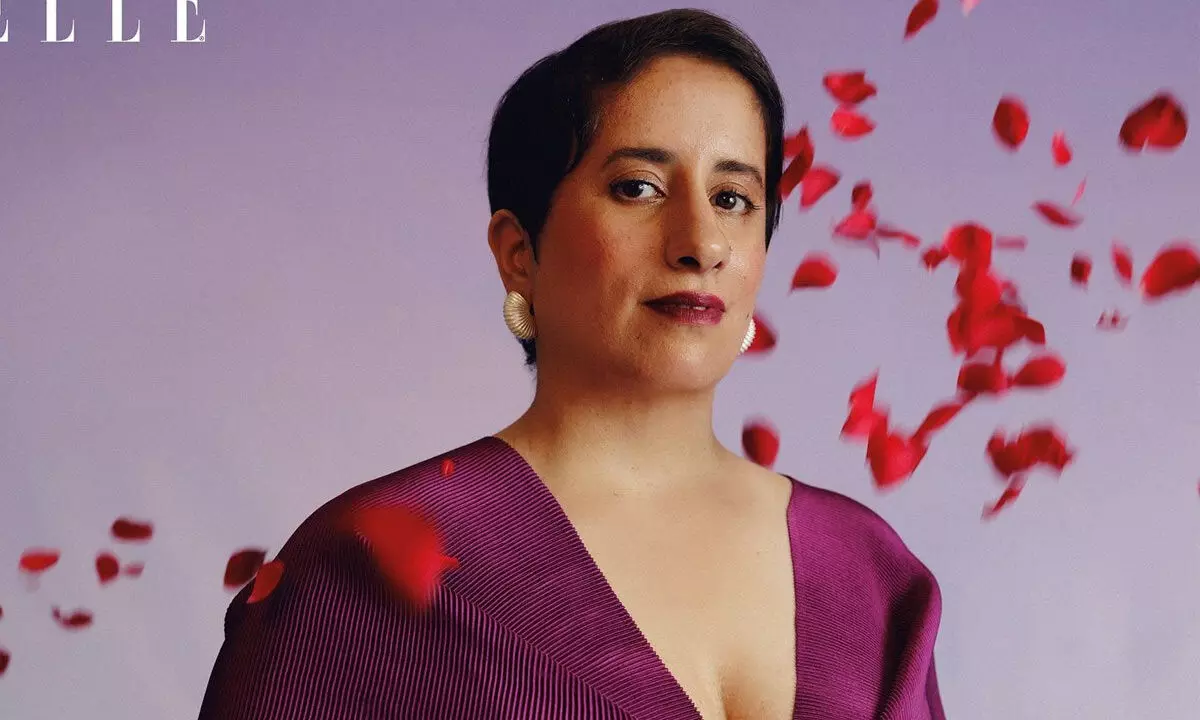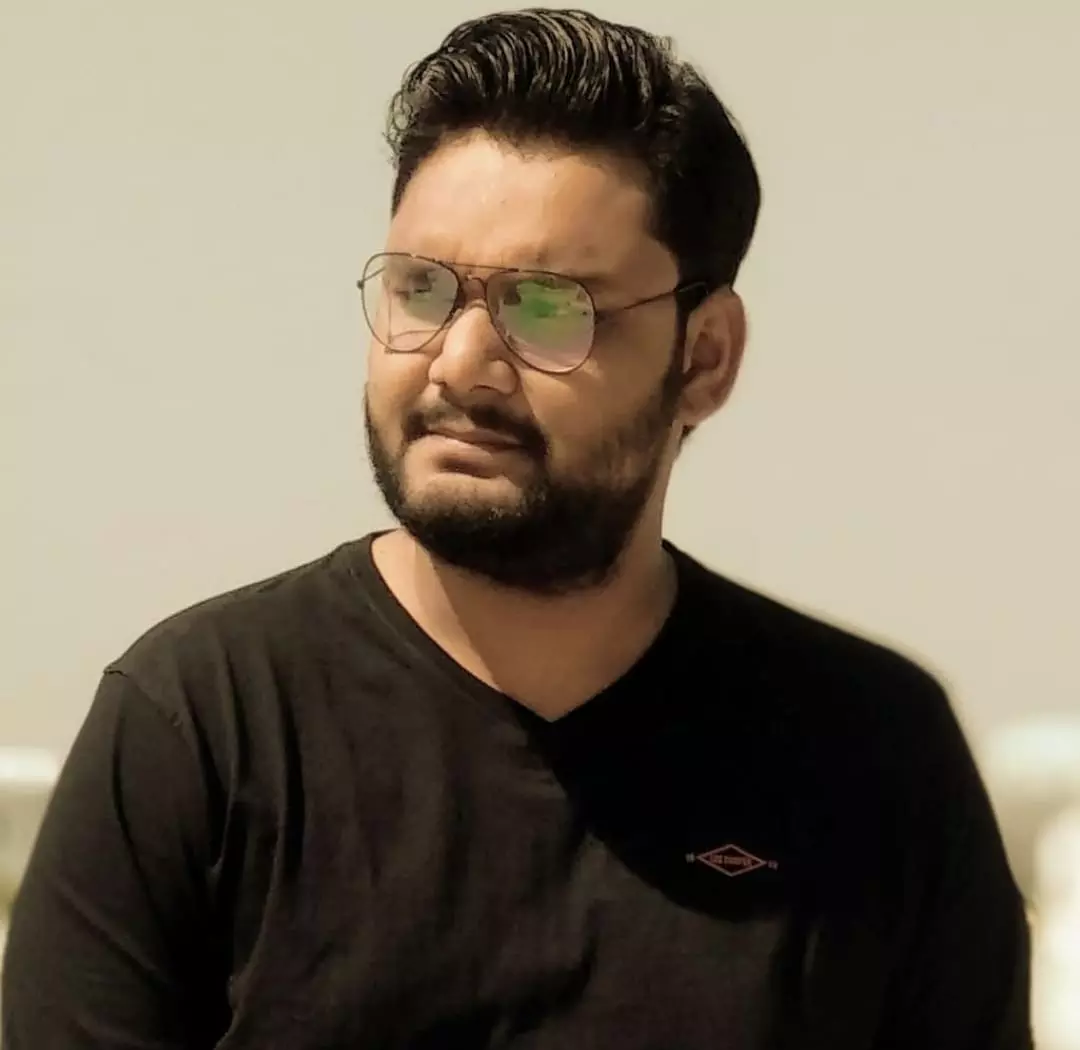Becoming producer at 21 to win an Oscar

Don’t overthink the process, just keep creating: Guneet Monga
In a film industry traditionally dominated by men, women are breaking barriers and making their mark both behind and in front of the camera. Guneet Monga, a young and dynamic producer, has not only defied age and gender stereotypes but also proven her mettle by bringing unique and captivating stories to life. From producing her first film at 21 to winning an Oscar, she’s demonstrated that talent and determination know no bounds. Her recent outing, ‘Gyaraah Gyaraah’ hits Zee5 platform and gets applauds. In this exclusive interview with Hans India, Guneet discusses about “Gyaraah Gyaraah,” her journey, the challenges she faced as a woman in the industry, and the importance of empowering young female filmmakers.
What drew you to this project, and how does it reflect your storytelling vision?
I was immediately captivated by the core concept of Gyaraah Gyaraah. The story revolves around two cops, working across timelines to solve cases while facing the ripple effects of the butterfly effect. That idea fascinated me. It took us about a year and a half just to secure the remake rights from Korea. We then collaborated with Umesh Bisht and two amazing writers, Sunjoy Shaker and Pooja Bhatt, to make this story our own in an Indian context. Umesh had the brilliant idea of setting it in the hills, which added a layer of mysticism and magic to the narrative.
How do you see the evolution of content in the OTT space, and how does it differ from traditional filmmaking?
In digital storytelling, you have the opportunity to dive deeper and tell longer stories, which is a key difference from traditional filmmaking. You can play with cliffhangers in each episode, keeping the audience hooked from one to the next. In Gyaraah Gyaraah, we put a lot of thought into the cliffhangers, making sure they would compel viewers to keep watching. The core difference lies in writing. In films, you usually build up to one major high point, while in OTT series, you have to create multiple high points without losing momentum. It’s more challenging, but that’s also what makes it exciting.
Gyaraah Gyaraah stands out for its blend of sci-fi and crime. How did you expect this mix to work in the current landscape of web series?
Police procedurals have always worked well in TV shows and films. The ‘whodunit’ format keeps audiences engaged. But we didn’t want to make a typical police procedural. We added a twist of sci-fi and magic. Sci-fi, especially in Hindi cinema, is tricky and hasn’t always been widely accepted. So, we saw this as a challenge — mixing a traditional crime-solving format with elements of time travel and magic. It’s a unique combination, and I’m glad it landed well with the audience.
Since the series is based on time travel, if you could go back to any era, which would you choose and why?
I would choose my childhood in the 90s. I lost both my parents in my early 20s, so if I could go back, I’d spend more time with them. If I could communicate with them now, I’d tell them about the Oscar and how I made them proud. It’s an emotional choice, but that time holds a special place in my heart.
Can you share your experience of winning an Oscar and the emotions you went through at that moment?
It was surreal. I never imagined I would go up on that stage. The moment was magical and overwhelming. I wasn’t prepared for it, but it’s something I’ll always cherish.
As a woman in the film industry, you’ve broken several barriers. What challenges have you faced?
Interestingly, the biggest challenges I’ve faced are related to my age rather than my gender. I don’t come from a wealthy background; I come from a lower-middle-class family, and I moved to Mumbai with big dreams. Being taken seriously as a young filmmaker, especially as a producer, was tough. I produced my first film at 21 and then Gangs of Wasseypur at 26-27. At that age, people questioned whether I could handle such projects. So, I’ve dealt more with ageism than sexism. But I never let those barriers stop me.
How can the industry better support young filmmakers and producers?
Social media is already playing a huge role in this. Younger creators with large followings are demanding respect in the industry, which is fantastic. Older generations now look to younger voices to stay relevant. I think it’s crucial to respect the perspe ctives of young filmmakers and stay open to new ideas. That’s how we evolve.
As someone who has achieved so much, what advice would you give to young filmmakers aiming for the Oscar stage?
Don’t overthink the process. Just keep creating. The director of my Oscar-winning film was a first-time director. She started as a national history photographer and eventually made her way to the Oscars.
She made a cold submission of the trailer, and that’s how we connected. It’s proof that magic happens if you keep creating and don’t give up. Focus on your stories — the awards will follow if they’re meant to.
Finally, is there a Gyaraah Gyaraah sequel in the works?
That’s up to Zee5! We’re hopeful, but there’s no confirmation yet. Please show your love on social media, and hopefully, we’ll get the green light for a sequel soon!











